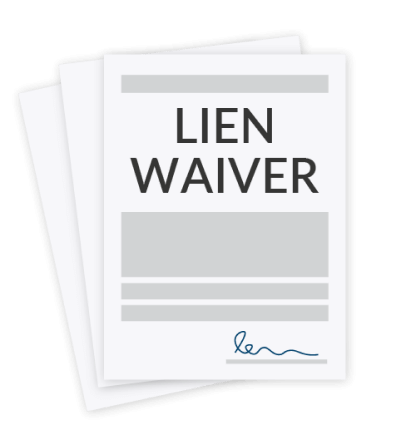
Florida is one of the 12 states that has regulated and statutorily provided lien waiver forms. However, unlike the other 11 states, statutory forms are provided in Florida lien law, but not actually required. Also unlike the other 11 regulated states, Florida only provides two forms: one for release upon progress payments, and one for final payments.
Waiver Forms
lawyers to meet Florida's lien waiver rules.
Download or send a form today.
Guide to Florida’s Lien Waiver – Progress Payment Form
A “progress payment’ is an installment payment to a contractor. It’s one payment among many. Because future payment is expected, it’s important that the waiver reflects that. When submitting a waiver, it’s also important to distinguish whether the progress payment is in hand, or whether the payment is still outstanding (even if it will be made in exchange for payment).
Depending on whether payment has already been received, it might be important to convert a regular Florida lien waiver into a conditional one. When a waiver is conditional, it won’t be effective until payment has been received. Under §713.20(7) of the Florida lien statute, a lienor who executes a lien waiver and release in exchange for a check may condition the waiver and release on payment of a check.
How to convert a lien waiver to a conditional waiver
To convert a lien waiver into a conditional lien waiver, the following language must be added:
“pursuant to Construction Lien Law, Florida Code §713.20(7), this waiver and release is conditional and effective only on the lienor’s receipt of payment from the financial institution on which the following check is drawn.”
Plus, some other information must be included: the (1) maker of check, (2) amount of check, and (3) check payable to information. By incorporating the language above and including the necessary information, a waiver will be converted to conditional and will only be effective upon receipt of payment.
How to Fill Out the Florida Lien Waiver for Progress Payments
> Sum of $___. This blank spot does not represent the amount of money that is being waived, it’s only there to show that there was some consideration given for the work. The amount of labor or materials the lien waiver will cover is for all the work that was provided up to the through date.
>Through date. This field is particular to progress payment waiver forms. This field is incredibly important. It determines what is and isn’t waived by the document. The party signing this lien waiver is agreeing to waive their claims for all work completed on or before the date entered. Be careful that you identify the correct date (related to the work performed and paid for), and not just the date of the related payment application or invoice.
>Customer name. This is the name of the person who hired the claimant, and usually the name of the party who will actually be making payment.
>Owner name. This field should identify the property owner(s). This may seem pretty straightforward, but slight nuances can lead to confusion. Think of the following scenarios:
- Multiple owners: list all of the owners
- Work done for a tenant: list the tenant and the property owner(s)
- Public projects: list the government entity that commissioned the work
- P3 projects: identify the owner of the property
>Description of the property. This is where the project is located. On mechanics lien claims, a full legal description is required. But, on lien waivers, a property address may be enough. However, the recipient of the waiver may prefer this to be a detailed description.
>Date. This date is more straightforward. It’s the date that the lien waiver is being signed.
>By. Time to sign the lien waiver. Include a printed name and address, as well as the signature of the claimant or authorized representative.
That’s it – the form should be complete and ready to execute.
Conclusion
Lien waivers are often overlooked but come with significant legal consequences. Hopefully, this guide helped clarify how to fill out this important form.
For a deep dive on Florida lien waivers:

